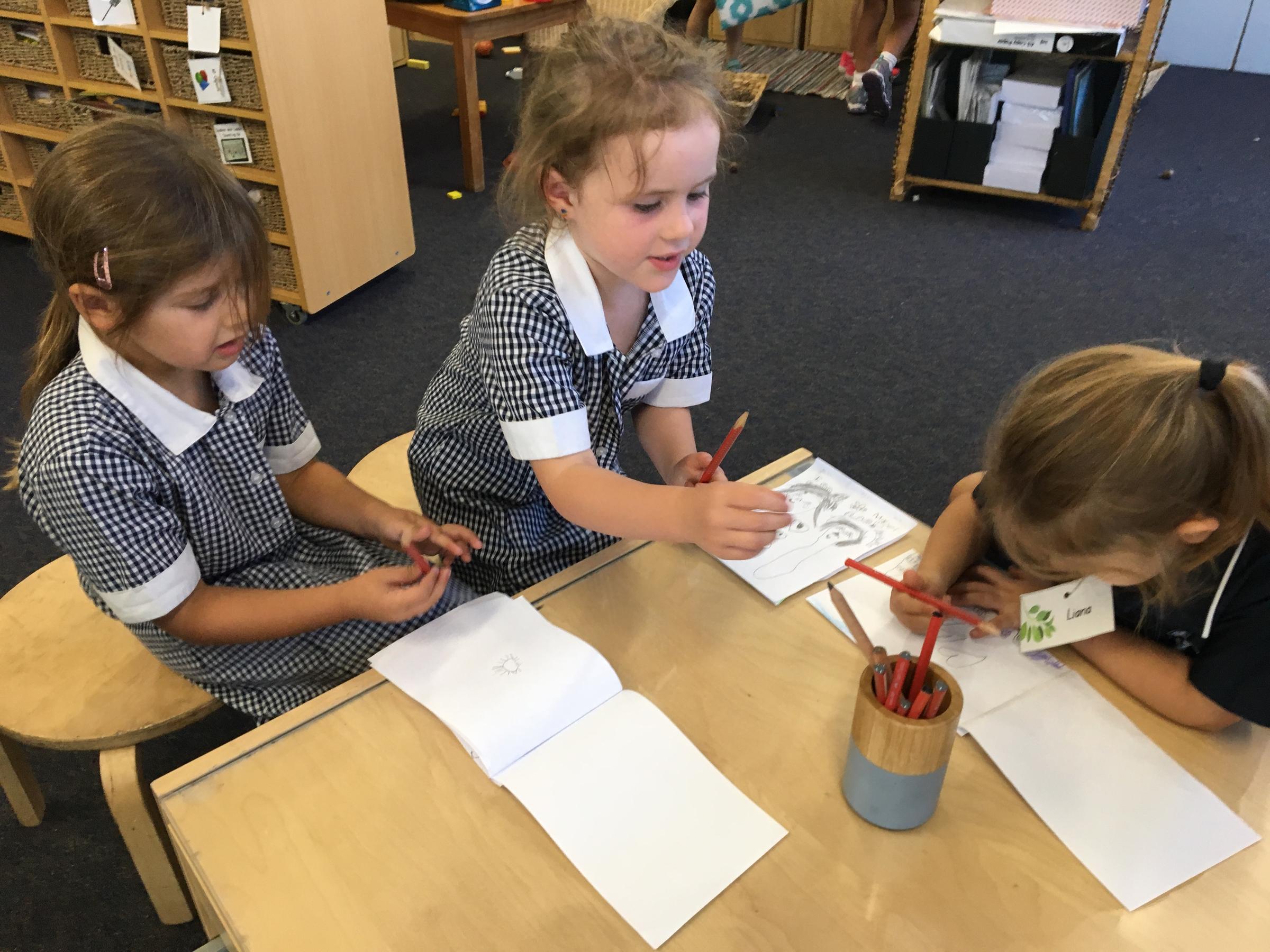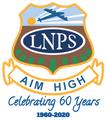I am an author

Literacy
Throughout the week students will work through a variety of literacy activities, some of the activities might include:
- Guided Reading
-Guided Writing
- Book Making
- Phonological Awareness Games and Activities (Syllables, Rhyme, First Sound Identification, Blending & Segmenting)
-Sequencing and Mapping stories
- Handwriting
- Literacy Apps
-Word Walls
Reading
It is crucial that children are exposed to a broad range of text types or genre from the very beginning of school. This term we will explicitly teach recounts while exposing children to the structures of a narrative through ‘read aloud’, role play and story boards. Teachers ‘think aloud’ to students; modelling how good readers use expression when reading and discuss the comprehension strategies readers use to understand what they read. We encourage students to ‘notice’ and ‘wonder’ to ensure they understand that reading is an active process! Non-Fiction text is also modelled and linked in with HASS to ensure our reading programs are comprehensive and balanced and that children understand that ‘we read different text differently’. During Term 1 we will be immersed in different authors.
Writing
Children will have a chance to write every day through Book Making and we will focus on the Recount and Retell genres in term 1. During term 2 our focus will be on Descriptive writing and information reports, as well as different authors.
Book Making
Book Making is a great way for children to record their personal inquiries . It is personal and individualised, which caters to all levels of writing, from children who are using pictures to create books to those writing full sentences and more. It allows children to learn high frequency words in context, while learning the rules of writing in a playful way, as well as, provides the opportunity for children to think and feel powerful like a writer. The process involves children developing a picture book. They are asked to think of a topic they are interested in and then develop their story by drawing pictures. They are then encouraged to compose their story, tell it and re- tell it and share it with others if they want to. At this stage as we are trying to develop the idea that students can tell a story through pictures. The words are in their head and they can recall them when re-telling the story. They can capture their story in their memory with repeated readings and this turns into a ‘shared’ memory when they read it to someone else. Some children will begin to attempt words.
Jolly Phonics
Explicit phonological awareness and phonics programs will occur this semester. We will use the Jolly Phonics program to introduce and consolidate the 44 sounds in the English language.
Target Time
Children will participate in "Target Time " workshops held across all Reception classes each day, to ensure they have targeted support and learning to help them progress in critical areas of English. These workshops will include phonological awareness (blending and segmenting, rhyming and consolidation of syllables) and phonics (linking sounds to letters and learning to form letters of the alphabet correctly). Groups are needs-based and are fluid - teachers are constantly assessing and monitoring individual children's progress and regrouping as required.
Oral Language
Students are given many opportunities throughout the day to practise oral language skills. From partner talk, small group and whole class discussions, to correct pronunciation of sounds, reception classes are constantly using oral language. Much of the learning is demonstrated verbally.
Handwriting
This semester handwriting will focus on correct formation of letters in each child's name and correct formation of the lower case letters introduced in Jolly Phonics. Then forming all the letters of the alphabet correctly. We will be incorporating weekly handwriting lessons into our programs using the ‘Writing Time’ resources. Letters are grouped according to how they are formed (usually their starting points) and provides a common language across all Reception classes and a fun and interactive way to teach handwriting. Children will be using dotted third paper and the 'pincer grip' will be explicitly taught to children to ensure they are gripping their pencil correctly from the very beginning of school.
